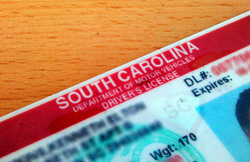
Here is a list of states where undocumented immigrants can obtain licenses (as of May 2013), even if they are not DACA recipients (for a list of states that issue licenses to DACA recipients see this Article):
- Washington
- New Mexico
- Utah
- Illinois (will begin issuing in late 2013)
- Maryland (will begin issuing in early 2014)
- Oregon (will begin issuing in early 2014)
- Connecticut (will begin issuing in January 2015)
A number of other states are currently considering legislation that would allow them to issue driver’s licenses to undocumented immigrants. For more information on the eligibility requirements for driver’s licenses in the states listed above, contact the nearest Department of Motor Vehicles. And remember, you cannot get a license from one of the states listed above unless live in the state and can prove state residency.
Carly Stadum-Liang, Esq.












 RSS Feed
RSS Feed
